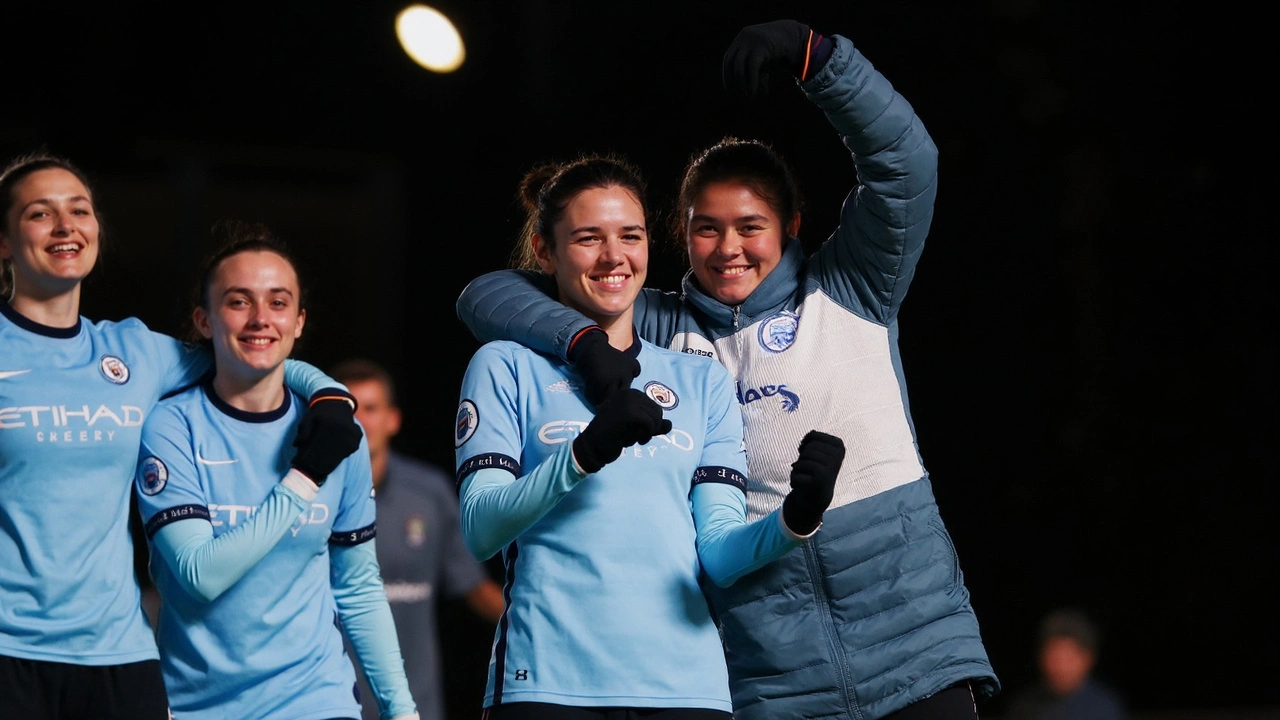High Stakes at Pride Park: City vs. Chelsea
As the Subway League Cup final between Manchester City and Chelsea approaches, all eyes are on Pride Park, Derby, on March 15. This match serves as a crucial debut for Manchester City's interim head coach, Nick Cushing, following the departure of Gareth Taylor. Cushing, who previously managed the team from 2013-2020, returns with a wealth of experience, having led City to several titles, including the 2016 Women's Super League championship.
Under Cushing's leadership, City hopes to capture their fifth League Cup title. They have previously triumphed in 2014, 2016, and 2019, and a victory on Saturday would enhance their reputation even further. However, standing in their way is a formidable Chelsea side, riding high with an unbeaten record this season.
Chelsea enters the match as favorites and is in pursuit of a historic quadruple. The team sits comfortably at the top of the WSL standings, eight points ahead, and has also secured spots in the Champions League quarterfinals and FA Cup semifinals.
This final is more than just a trophy; it's the precursor to a series of high-stakes clashes between these two giants. They will face off three more times in quick succession, including significant Champions League and WSL fixtures, a run that could define their seasons.
Chelsea's Dominance vs. City's Determination
Chelsea's tactical versatility under coach Sonia Bompastor will undoubtedly challenge City's strengths. With versatile players capable of adapting seamlessly to different styles of play, Bompastor has cultivated a squad that exudes confidence and dominance.
On the other hand, Manchester City faces a challenging league campaign, fraught with their own set of obstacles as they fight for Champions League qualification. The presence of influential players like Mary Fowler, who played a pivotal role in the semifinal victory, provides a beacon of hope for City. Her attacking prowess could be the catalyst City needs to overcome Chelsea's defenses.
The match also serves as a rematch of last year's League Cup final, where Manchester City emerged victorious over Chelsea with a 3-1 win at Plough Lane. This adds an extra layer of intrigue, as both teams look to outdo each other in this eagerly anticipated encounter.
Adding to the spectacle, the use of VAR for the first time in the knockout stages adds another dimension to this already thrilling contest. Fans can expect the game to be broadcast live on BBC One in the UK with global updates provided by ESPN.
With both teams set to field strong lineups, anticipation is at an all-time high. Who will rise to the occasion and claim victory in this prestigious event? Saturday will surely deliver an unforgettable match with rippling effects on the season's narrative.


Mike Malone
When one considers the trajectory of women's football over the past decade, the increasing professionalism becomes undeniable; the League Cup final serves as a microcosm of this evolution, embodying both tactical sophistication and cultural significance. The resurgence of an interim coach, Nick Cushing, invites a nuanced discussion about continuity versus disruption in a team's strategic ethos, particularly when juxtaposed against Sonia Bompastor's established methodology at Chelsea. Moreover, the historical context of the 2022 final, wherein City triumphed 3‑1, adds a layer of psychological complexity that transcends mere statistics, hinting at an undercurrent of rivalry that can influence player morale. From a philosophical standpoint, the notion of a "quadruple" pursuit reflects an aspirational paradigm wherein success is not merely a collection of trophies but a statement of identity and purpose for the club. The interplay of VAR technology, introduced into the knockout stages for the first time, raises questions about the role of external adjudication in the purity of the sport, compelling observers to weigh fairness against the erosion of human judgment. In terms of player development, the emergence of talents such as Mary Fowler underscores the importance of nurturing individual brilliance within collective frameworks, a principle that resonates across both sides of the pitch. Additionally, the geographic venue-Pride Park in Derby-offers a neutral ground that may mitigate home‑field advantage, thus placing greater emphasis on strategic preparation and adaptability. The timing of this match, positioned before three additional high‑stakes encounters, suggests a scheduling cascade that could either solidify momentum or exacerbate fatigue, an aspect warranting careful consideration by coaching staffs. Finally, the broadcast reach via BBC One and ESPN illustrates the global appetite for women's football, reinforcing the sport's growing commercial viability while also inviting scrutiny regarding equitable media representation. In sum, the forthcoming contest is not merely a single fixture but a focal point where tactical acumen, historical narrative, and cultural momentum converge, offering a rich tableau for analysis and appreciation. The psychological pressure on the young stars will be magnified, testing their resilience under the glare of international attention. Observers will also note how the differing managerial philosophies manifest in formation fluidity and in‑game adjustments. The anticipated intensity of the match may set a precedent for how future finals are approached, both on the field and in administrative planning. Ultimately, the event stands as a testament to the sport's capacity to inspire collective ambition while highlighting the individual stories that drive it forward. Thus, the outcome will likely reverberate beyond the trophy, influencing transfer strategies and youth development pathways across the league.